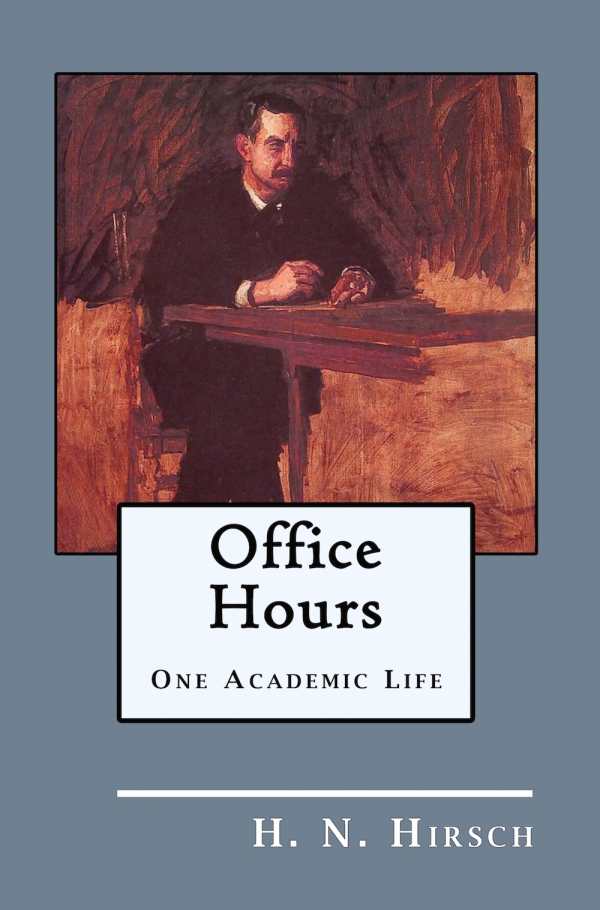Office Hours
One Academic Life
This heartfelt, often amusing book pairs awareness of historical events with a penchant for self-psychoanalysis.
Moving and thought-provoking, H. N. Hirsch’s memoir Office Hours delves into the complex nature of balancing academic success with the challenges of being an openly gay man in a tumultuous and changing society.
Hirsch grew up gay and Jewish in the sixties and seventies, a time of immense political and social change. He found comfort, and a means of understanding his life’s purpose, in academia. In this memoir, he discusses controversial topics, such as his own path to coming out and his strong political opinions, in a subtle and matter-of-fact way. His characterization comes through strongly, without alienating those with opinions that may differ.
Hirsch describes his life’s story in detail. He grew up in the suburbs of Chicago, a lonely child of divorce. Like many Midwesterners, he longed for life on the East Coast. He avoided Ann Arbor’s party scene in college, concentrating on hard work, and was accepted into Princeton for graduate school. He struggled to fit into Ivy League society while also embracing the period culture of sexual freedom. As Hirsch chronicles his academic success, the struggle of navigating two conflicting worlds is constantly at the fore: “You live in two harsh worlds, a therapist once said to me: the gay world, and academia.”
This heartfelt, often amusing book pairs awareness of historical events with a penchant for self-psychoanalysis. Hirsch’s experiences are organized thoughtfully, according to how they shaped aspects of his life—politically, psychologically, and socially. Memories are recounted analytically, so that it seems that Hirsch is trying to understand himself just as much as he is trying to share his story.
Firsthand accounts of pivotal moments in history are moving. The first chapter of this book recalls the day that Martin Luther King Jr. was shot, and Hirsch’s experiences are shown to reflect the feelings of an entire nation, exacerbating the heartbreak.
In the beginning, Hirsch writes in short, fragmented sentences, and while some add drama and punch, collectively they make the writing feel stilted and unnatural. A drawn-out analogy to Scarlett O’Hara and Gone with the Wind is also quaint at first but comes to feel forced. As the book progresses, stories become more engrossing, dropping that affected style, and the book becomes more riveting and easier to read.
Smart, funny, and poignant, Office Hours is an intelligent memoir that will not only touch readers of Hirsch’s generation but also help younger generations understand the changes of the period.
Reviewed by
Renate Childs
Disclosure: This article is not an endorsement, but a review. The publisher of this book provided free copies of the book and paid a small fee to have their book reviewed by a professional reviewer. Foreword Reviews and Clarion Reviews make no guarantee that the publisher will receive a positive review. Foreword Magazine, Inc. is disclosing this in accordance with the Federal Trade Commission’s 16 CFR, Part 255.

